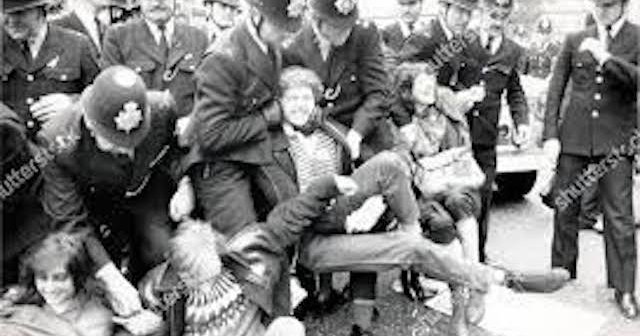
I am an Associate Professor at Simon Fraser University (SFU), Director of the Institute for the Humanities and founding Vice-President of the West Coast Coalition Against Racism, the recently formed successor to the BC Organization Against Racism, an organization that was instrumental in combatting racism and white supremacy in this province in the 1980s.
While I have lived, studied and worked in many parts of the world, I spent my formative years in this province after having emigrated here with my parents from East Africa as an infant in 1965. During that time, I experienced what can only be described as racial-profiling due to my ethnicity. Being a member of the South Asian diaspora living on the North Shore made me of particular interest to the police.
It was often a matter of a minor infraction such as a broken taillight or failure to signal while changing lanes that led me to be pulled over and typically ticketed in ways that my white friends were not. I’m sure, however, that the fact that I was middle class (both of my parents had been educated in the UK and were small business owners), enabled me to get off much more lightly, and generally without incident, than had I been working class, a turbaned Sikh, a black or an Indigenous person.
***
As a student on my Junior Year Abroad in 1985-86 at the London School of Economics, I experienced, with countless others, the brutality of the London Metropolitan Police who routinely used kettling – the tactic of forcibly, sometimes quite brutally, confining members of the public to a small space – as a way of breaking up lawful protests against the racist South African apartheid regime in Trafalgar Square, just kitty corner from Canada House.
It was this same LMP that protected members of neo-fascist political parties about a decade earlier as they marched malevolently through predominantly South Asian communities in London neighborhoods such as Southall and Tower Hamlets.
These South Asian communities, in contrast, were forced to rely on themselves, as well as the solidarity of anti-fascist and community organizers, to defend themselves from brutal attacks also known as “Paki-bashing” at the hands of racist skinheads and football hooligans.
***
That significant elements of the military and law enforcement in this country today (I’m thinking of former Manitoba reservist Patrik Matthews who crossed the southern border to join up with the far-right group, The Base), and, as we saw during the attempted Putsch on Capitol Hill, in the United States, are tied to far-right organizations, sadly, comes as no surprise to me whatsoever.
Neither does the fact that, as reported by the Global News, this past September, the RCMP stood by and watched as anti-racist activists were threatened by members of the Yellow Vests, Soldiers of Odin and other far-right organizations in Red Deer, Alberta.
Nor am I surprised at the way in which the RCMP’s zeal in our province to enforce an injunction on behalf of a foreign company (CGL), contrasts so markedly with its apparent lack of interest in serving and protecting the embattled Mik’ Maq against the violence of the commercial fishers in Digby and Yarmouth counties last fall.
In fact, as the Guardian Newspaper reported on 20 December, 2019, RCMP commanders authorized the use of lethal force in order to gain access to Wet’suwet’en territory.
I recall watching with horror several episodes of over-policing to quell legitimate protest and dissent from APEC in 1997, through the G20 Summit in Toronto and the Winter Olympics in this province both in 2010.
I was present when Indigenous and non-Indigenous land defenders, my colleagues Lynne Quarmby and Stephen Collis, students and friends, including the Grand Chief Stewart Phillip, were arrested in 2014 for peacefully seeking to halt construction on the TransMountain Pipeline through a protected wilderness site on Burnaby Mountain – just steps from SFU’s main campus.
One year later the government passed a deeply flawed anti-terror law which would have effectively rendered such an act of civil disobedience a “terrorist” act.
In each of these cases, law enforcement used what could only be described as dictatorial methods to shield the deeply damaging policies of global neo-liberalism from critical scrutiny and peaceful opposition by the very citizens it was supposed to serve and protect.
So, I have both a personal as well as an academic interest in policing.
I want to make clear from the outset, however, that I do not appear here as an expert on policing. I am not a criminologist.
My area of expertise is as a political philosopher. As such my role is less to provide answers than to ask questions – often difficult and uncomfortable questions – of institutions.
The institution in question today is, of course, the institution of policing. And my role is to ask about the nature and legitimacy of power that such institutions wield; and about how such legitimacy relates to our liberal-democratic system of government.
Next month Part Two : A question of power
This piece was originally published in the March edition of Splinters,
PrintSamir Gandesha | Radio Free (2021-03-19T17:24:04+00:00) Submission to the Special Legislative Committee on reforming Canada’s Police Act: 1. Retrieved from https://www.radiofree.org/2021/03/19/submission-to-the-special-legislative-committee-on-reforming-canadas-police-act-1/
Please log in to upload a file.
There are no updates yet.
Click the Upload button above to add an update.